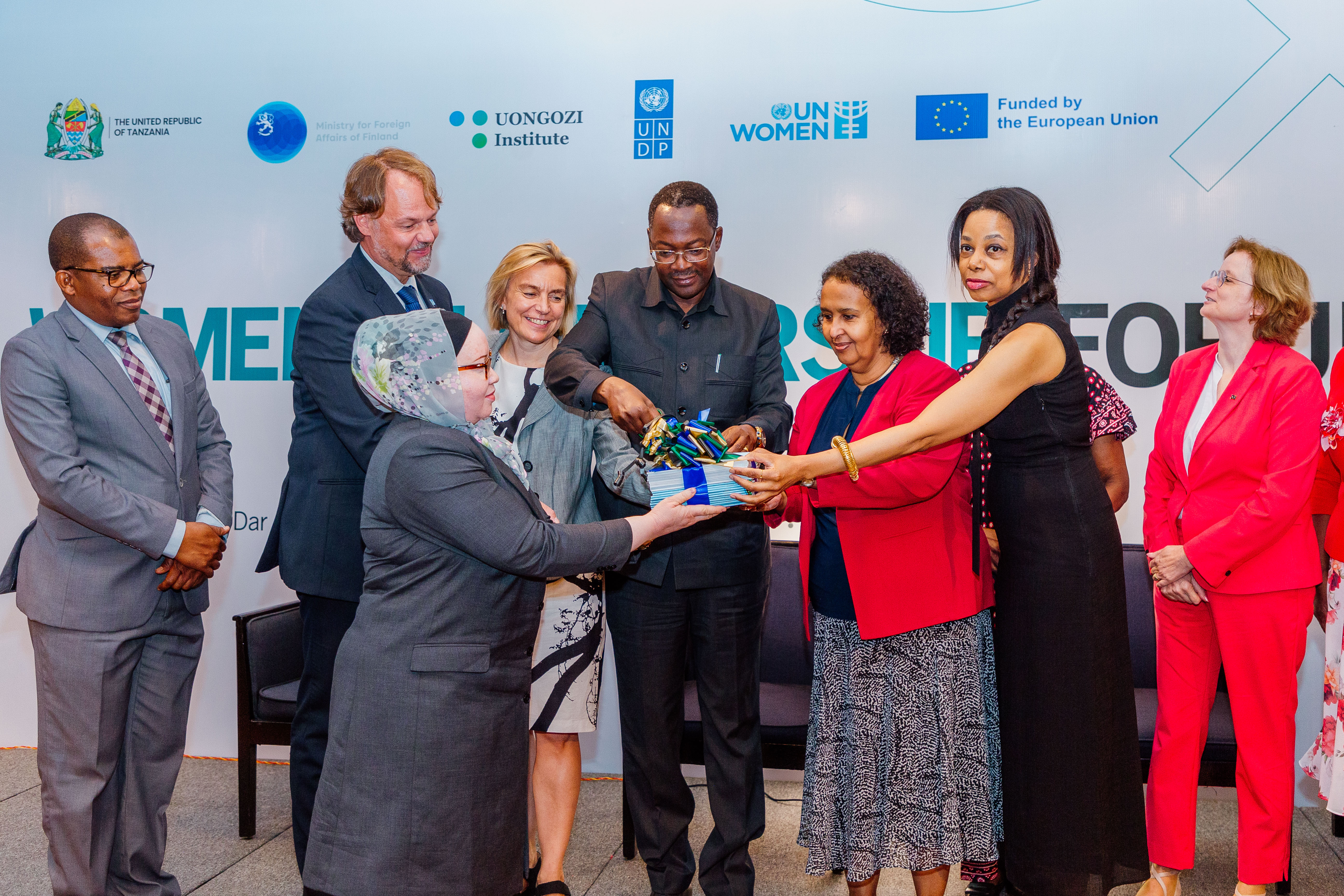Breaking Barriers: Launching Gender Mainstreaming Guidelines for Women's Leadership in Tanzania
September 14, 2023

Representatives from Uongozi institute, UNDP, UN Women, UNFPA, European Union and Finland launching the gender mainstreaming guide.
In a significant step towards advancing gender equality and empowering women, the United Nations Development Programme (UNDP) actively participated in the 3rd Uongozi Institute Women Leadership Forum. This forum focused on "Advancing gender equality in leadership for sustainable development in Tanzania." UNDP, guided by key programming principles, especially Gender Equality and the Empowerment of Women, is dedicated to promoting gender equality as outlined in Sustainable Development Goal 5 on Gender Equality.
The theme of the event strongly resonated with SDG Target 5.5, emphasising the need to ensure women's full and effective participation and equal opportunities for leadership at all decision-making levels in political, economic, and public life. It also aligned with the UN principle of 'Leave No One Behind,' which extends to all aspects of life, including leadership and decision-making.
UNDP firmly asserts that the inclusion of women in leadership and decision-making is not merely an option; it's an inherent right and the right course of action. Women make up more than half of the global population, with Tanzania mirroring this demographic balance as women constitute 51% of the country's 61 million people. Despite numerical equality, gender disparities persist in women's representation across various spheres of life, a challenge not unique to Tanzania but a global concern.
UNDP commends Tanzania's proactive steps towards promoting women's inclusion in leadership and decision-making within the public service, a foundational element of any effective Public Administration. The public service remains unwavering, ensuring that governments operate efficiently and deliver services, even during political transitions, serving as the cornerstone for state stability. Therefore, women's representation in the public service plays a pivotal role in propelling Tanzania towards its transformative development goals outlined in 'FYDP III' – "Realising Competitiveness and Industrialisation for Human Development."

Women participating in the fourth cohort of the women's leadership training initiative.
The launch of the 'Gender Mainstreaming Guidelines for the Public Service' at the forum demonstrates Tanzania's commitment to these aspirations. UNDP, alongside UN Women, significantly contributed to developing these guidelines, made possible through funding support from esteemed development partners, the European Union and Finland.
The significance of these Gender Mainstreaming Guidelines becomes apparent when considering UNDP's 2021 report, 'Gender Equality in Public Administration.' This report revealed that as of 2016, gender parity in Tanzania's public service stood at 26%. Encouragingly, a study conducted by the Uongozi Institute in 2020 demonstrated an improvement in women's participation in the public sector, reaching 30%.
With the graduation of the Leadership Cohort and the implementation of the Gender Mainstreaming Guidelines, Tanzania is poised to make further strides towards achieving gender parity in the Public Service. This pursuit of gender equality should be complemented by well-crafted policies and strategies that translate into benefits for women across all spheres and, ultimately, for all Tanzanians.
UNDP remains unwavering in its commitment to advancing gender equality in leadership and ensuring that no one is left behind on the path to sustainable development. The organisation emphasises that gender equality and women's empowerment are not only fundamental rights but also astute development strategies that positively impact society as a whole. The accomplishments of this event underscore the importance of inclusive leadership in the pursuit of sustainable development.

 Locations
Locations

